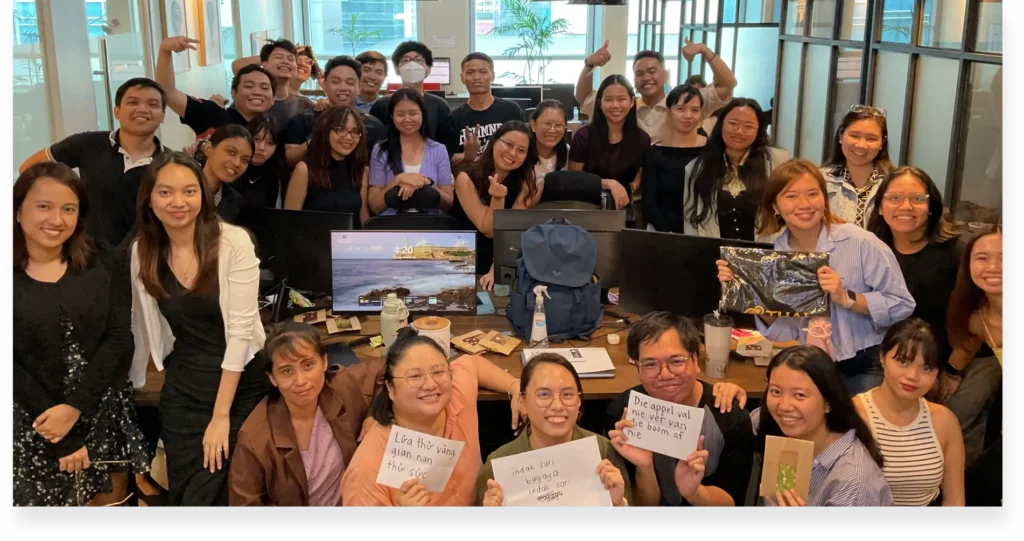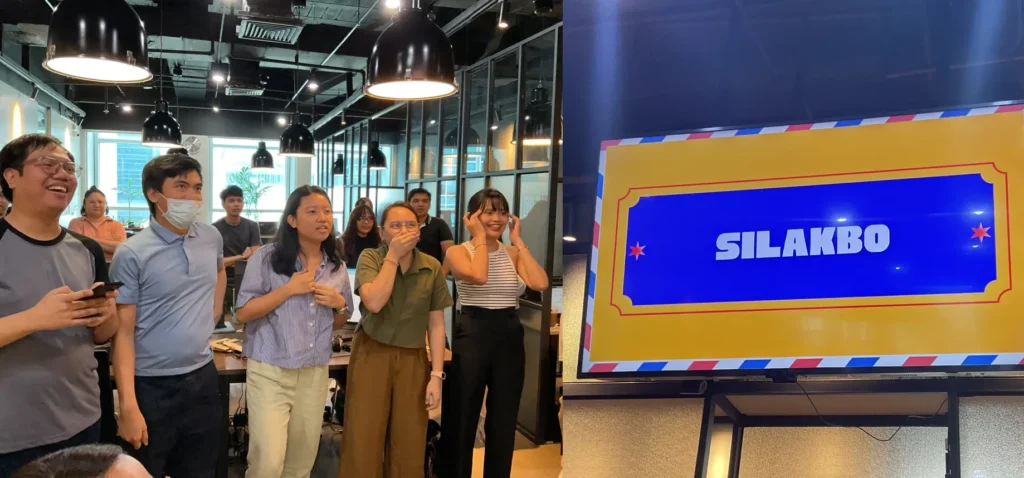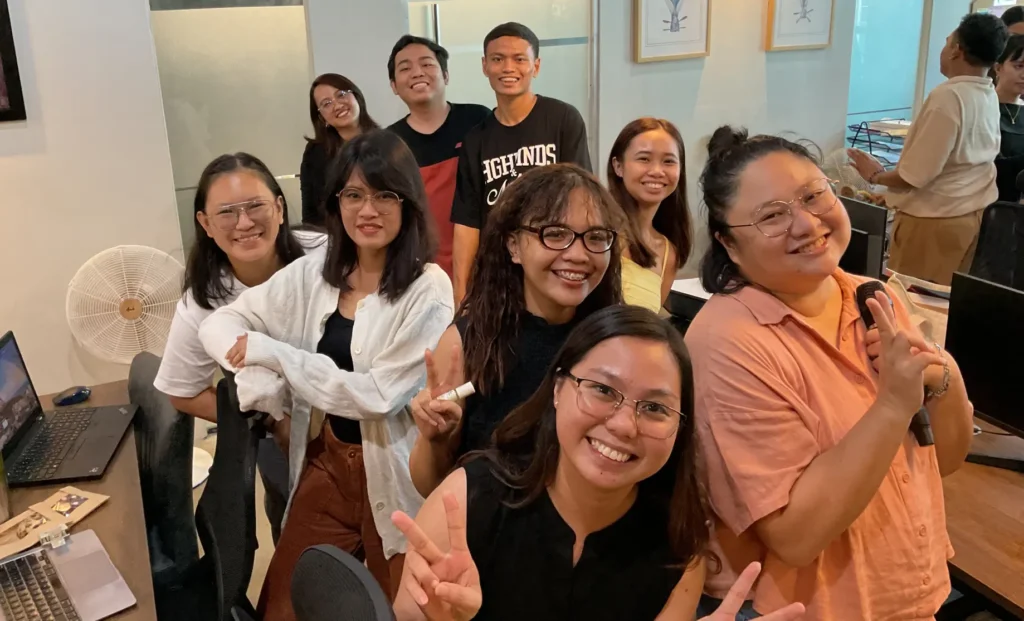
Nicole D., AI Language Quality Engineer |
November 28, 2024
I’m known to turn into a live wire when I join company games.
It’s not unusual for me to be reticent at the office, cooped up in my cubicle (or my relegated spot among the coworking tables), intensively scrutinizing files, and suddenly take on the character of a football team captain in overtime when the facilitator’s PowerPoint flashes in front. I bet my penchant for histrionics during games has even struck a curious chord among newbies. (Yes, I’m self-aware that way.)
I have a childlike passion for physical games. I’m drawn to the challenge of thinking and acting fast for their own sake and, of course, bonding with others. While the jaded, no-nonsense employee would roll their eyes at what they believe to be contrived social settings, I’m overcome with a wave of youthful exuberance when there are games at the office, perhaps to a much greater extent than what was intended. LDW activities are definitely one of my favorite things about Lexcode.
Initiated during the pandemic, the long-distance work (LDW) activity is a monthly company-wide activity organized by a designated team. Now, its name hardly rings true, as everyone’s required to report to the office on LDW activity day, but retaining the pandemic’s legacy was a nice touch, after all.
Recently, I realized LDW activities offered so much more than merriment.
They inspire creativity. Yes, they’re a requirement for all teams, but you’d want to market your team’s activity as you would any product or service of the company, right? In AI QA’s case, our LDW activity was right around International Translation Day, so we were encouraged to host a translation-related game. Darn, I thought. I wanted to recreate the New York Times games for word lovers, the perfect way to fan out our editor feathers. Nevertheless, I was pleased with the three mini games we conceived: Gesture Jester, where you acted out foreign idioms; Toll-Free Telephone Game, where you relayed a foreign saying; and Palaliman ng Talasalitaan, where you translated obscure Filipino words into English. I even had an impish satisfaction penning the copy for our teaser, intimidating the company as if those games could have only been devised by the devil herself.

They instill a sense of belongingness within both the group and the company. The human tendency to identify with a group is fascinating. Mix random people across teams at work, especially those whose jobs couldn’t be more different, and watch them beam with pride with their self-made group name and boast their little wins the next minute. Nothing brings people together like an adrenaline rush.
They develop teamwork outside of usual work. Whether you’re on the facilitating end or the participating end, the strengths of each person in your party are revealed and leveraged. The colleague with hidden artistic skills wins their group the drawing challenge. The colleague you didn’t think much of turns out to be good at leading. Or flipping bottles. These group activities are miniature simulations of what it would be like to work with other people if you ever crossed paths professionally.

I always feel the air change after an LDW activity. People let loose and speak in louder voices, having released pent-up stress. Whether to celebrate their group’s win or recall someone’s antics, everyone goes home with a happy face. It’s disingenuous to say everyone becomes the best of friends afterward—even The Breakfast Club acknowledged this impossibility—but connections can be formed anew or strengthened, inside joke by inside joke. We may retreat to our reclusive ways when the work clock resumes, but the next time you interact with a former stranger-turned-groupmate, you see them in a new light, a sort of silent appreciation. I can only hope that people derive the same simple yet meaningful joy from the LDW activity as I do.
nice